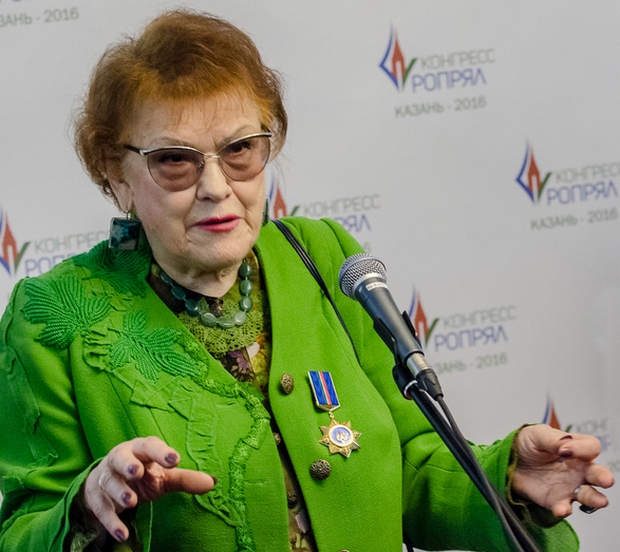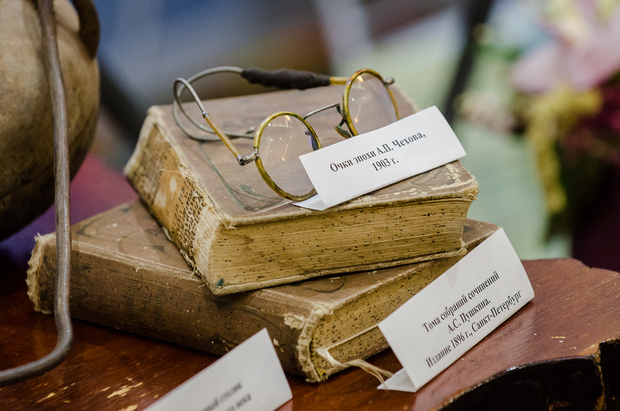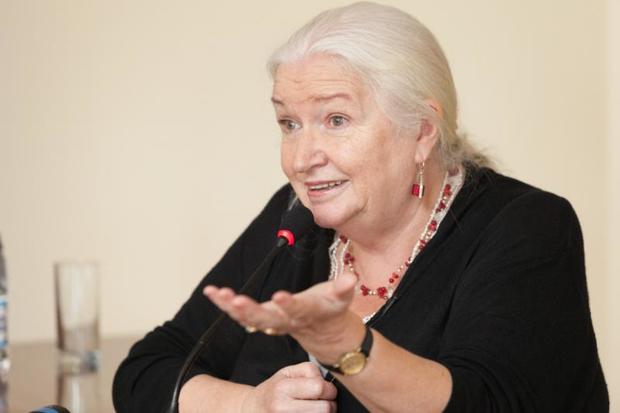‘We overload children with facts and pieces of information, we do not teach them how to reason, investigate’
Bazarov is a nihilist, Katerina from Storm — a call to suicide. War and Peace and Dostoevsky's novels are to blame because they are ‘deep philosophical works, with profound reflections on various topics'…
Last week, the capital of Tatarstan welcomed the honorary guests of the V Congress of the Russian society of teachers of Russian language and Literature. Among the interesting delegates — the President of the Russian Academy of Education Lyudmila Verbitskaya, who has recently proposed to exclude the works of Tolstoy and Dostoevsky from the school programme in Literature. A writer, teacher and journalist Airat Bil-Bulatov in his column, written specifically for Realnoe Vremya, tells about the causes and consequences of such restrictive initiatives.
A big event took place in Kazan — the Congress of the Russian society of teachers of Russian language and Literature. It is important not only for teachers but for everyone who follows developments regarding the school programs in Literature. For example, I follow and wanted to go. But I couldn't, as it turned out that the President of Tatarstan Rustam Minnikhanov arrived at the event and media accreditation for the event became complicated. From our TV channel, only a news group was allowed, leaving me a role of a so-called 'couch-based analyst'.
During the forum, Lyudmila Verbitskaya, the one that in a recent interview to the 'Moscow' Agency advocated for exclusion of War and Peace by Leo Tolstoy and 'some of Dostoevsky's novels' (how many of them?) from the school programs, was awarded the order 'Duslyk'.
The talks about 'to exclude' appear quite regularly. In 2013, a man with an aptronym name Pozhigailo, the chairperson of the Commission at the Civic Chamber, recognized the works Fathers and Sons by Ivan Turgenev, Storm by Alexander Ostrovsky, the critics of Vissarion Belinsky, the civil poetry of Nikolay Nekrasov and the tales of Mikhail Saltykov-Shchedrin potentially harmful.
Well, Bazarov is a nihilist, Katerina from Storm — a call to suicide. War and Peace and Dostoevsky's novels, from the point of view of Ms. Verbitskaya, are to blame because they are 'deep philosophical works, with profound reflections on various topics...'. Profound reflections, what is more — on variuos topics, of course, it is too much! Well, there is nothing new under the sun, the developers of the reform of the 1870s already gave such arguments, for example, in the so-called Gymnasium Charter of 1871.

Sergey Stepnyak-Kravchinsky, who had a semi-legal status in Europe, commented on it indignantly: 'The explanatory memorandum to the Charter bluntly states that 'the less in gymnasiums they will study History, the better'. Count Tolstoy (the then minister of education) also anathematized the Russian literature, and, at the same time, general geography because of its 'dangerous tendencies'. This subject can 'suggest contradictory conclusions and cause useless arguments'. In other words, the study of geography can lead to disputes on political and social issues. For this reason, the Charter of 1871 provided the reduction in the number of lessons in History, Geography and Russian Literature" (see: Stepnyak-Kravchinsky, S. M. Russia under the reign of Tsars, Chapter 26).
Literary anecdotes
However, Kravchinsky is not only a famous writer but also a revolutionary terrorist, an assassinator of the General. Are we really going to listen to him? And maybe there's no politics, and Lyudmila Verbitskaya is right (a holder of the order for merit to the Fatherland of all IV degrees, the most important of which — I degree – she was awarded in June 2016) that 'a child cannot understand the full depth' of these works?
I think I will quote a 'monument' I have — a work by a freshman written 5 years ago under the title 'A hero of our time': 'In the 19th century, Dostoevsky F.M. wrote one of the greatest works of Russian literature — 'A Hero of Our Time'. At that time, the hero was Bazarov with his progressive outlook on life, with his coldness and even hardness. But what would Bazarov like if Dostoevsky wrote about our time?'

The talks about 'to exclude' appear quite regularly…
For the most readers it is still obvious that in one sentence a student mixed up three writers — Lermontov, Dostoevsky, and Turgenev… Perhaps, many teachers have such writings in their collections (similar examples was given by a famous actor and teacher of theatre school Vadim Keshner). Well, those entered into a theater school will catch up, and this guy, after this embarrassment — started to read books and did a lot over four university years. But many never read! And then, this confusion might be not obvious for the readers and they will need a comment?
Where is Chernigovskaya?
You can hear even the following: why we should know that? Yes, everything is in the Internet! Well, in the Internet is not in the brain. In the process of reasoning, thinking this knowledge will not be attracted by a person, if he or she does not have them. The generation gap of the Russian people will increase. I wanted to take a comment of other famous Professor Tatiana Chernigovskaya at the Congress, she deals with the problems of consciousness, including among adolescents, the problems of the very 'thinking'.
On the eve of the Congress I saw the name of Chernigovskaya in the official program of the Congress (which was attached to the news on the website of the Ministry of Education) with a report at the plenary, but when I opened the website on the first day of the event I found that the speaker was replaced. On 6 October, when the forum continued its work, on the Ministry of Education website there was no either the program or the news! We could only watch television coverage of the award ceremony of Ludmila Verbitskaya.

'I'd like to take a comment of other famous Professor Tatiana Chernigovskaya at the Congress, she deals with the problems of consciousness, including among adolescents, the problems of the very 'thinking'. Photo: narfu.ru
My late friend, a biologist Evgeny A. Sapaev told about the known biology student's book by Yury Polyansky, used by many generations of Soviet schoolchildren. Sapaev met with Yury Polyansky, he was very fond of his work, said that the earlier editions were better than the later ones. Because they were added with new topics, scientific discoveries, but the volume remained the same at the expense of of the previous topics. This tendency seems to be one of the determinant now: we overload children with facts and pieces of information, it does not teach them to reason, investigate, they just do not have time. Now the professionals-teachers aim not to overcome the disease of modern education, but, on the contrary, to remove the works with 'profound reflections on various topics' (Oh, what a savory phrase Lyudmila Verbitskaya said, it is almost temped to quote in the feuilleton!).